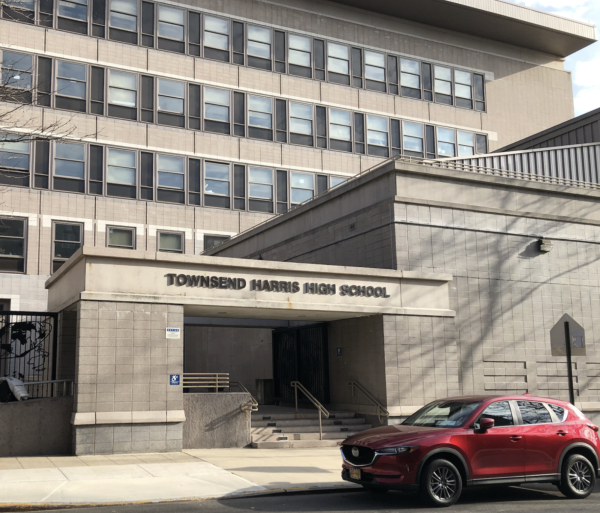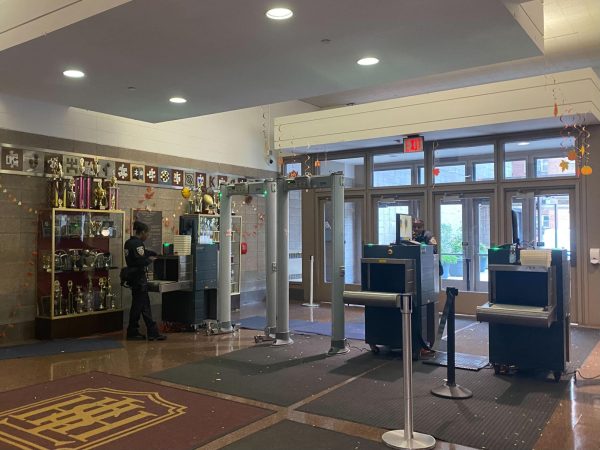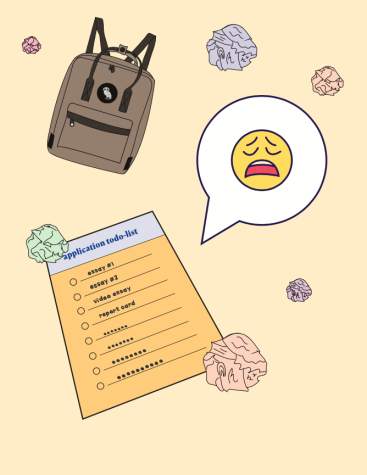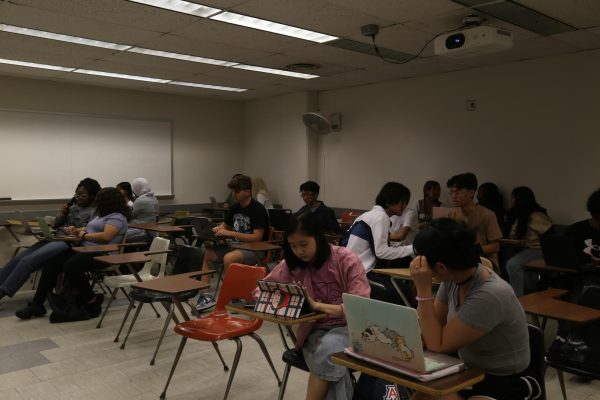Editorial: Colleges must fight back against attempts to remove key topics from the new AP African American Studies course
The College Board announces its new AP African American Studies Course, but amid controversy, doesn’t recognize that the content should not be optional for students.

In the late days of January 2023, the largest provider of standardized testing in the United States, the College Board, announced its new Advanced Placement (AP) African American studies course, which included topics such as the Black Lives Matter movement, reparations, and mass incarceration.
In partnership with the Florida Department of Education, Florida Governor Ron Desantis addressed this course in a speech in which he said the course had “a lack of educational value.” The backlash caused the College Board to make topics like Black Lives Matter “optional.” The College Board denied that Florida politicians influenced these decisions, and on February 11, the company accused Desantis of pushing his political agenda and the Florida DOE of “slander.” They expressed their “deep regret” and said their “failure to raise [their] voice betrayed Black scholars everywhere and those who have long toiled to build this remarkable field.”
What they did not do was say, “studying the Black Lives Matter movement is a part of African American history and is not an optional topic.”
It seems as though the College Board has no intention of reversing its changes amid the strong wave of criticism about its integrity.
It’s important to remember that the College Board is a “not-for-profit” organization that pays its CEO nearly $2 million a year and receives billions of dollars in revenue yearly. The product it sells customers is the ability to take a college course before college and receive credit for it once there.
Let’s cut through the trolling: those who object to learning about Black Lives Matter would be unlikely to take (or allow their children to take) AP African American Studies. Objections to this course content are cynical ploys to stigmatize the course before the College Board offers it anywhere and to mire it in controversy.
Regardless of whether the curriculum discusses “controversial” topics, it is not the controversy that scares Florida’s politicians but rather the questions it raises. Teaching children about Black history means teaching them about America’s long, undeniable relationship with racism, discrimination, and violence. It means acknowledging that somewhere along the way the American government went wrong and that accountability—what politicians fear the most—was not served.
Will politicians who object to this course pull all of their children from their other AP courses? Of course not.
But colleges should make it clear that they will not stand for this demagoguery.
For there to be some public consequence for the College Board’s failure to fight against the political games being played over education, colleges should have the responsibility of deeming high schools that refuse to teach essential topics like Black Lives Matter, reparations, and mass incarceration as unworthy of educational trust and unworthy of the promise the College Board sells its customers.
In other words, if a Florida school wants to fight “wokeness” by removing ideas they disagree with from the historical record, then any student attending that school should be considered compromised, their applications less competitive, and should they receive admissions offers, they should be deemed unfit to receive college credit for any AP courses they took. If that school cannot teach AP African American Studies without censoring complex subjects, why should any college trust the scores those students receive in an AP European History course or an AP United States History course? A school that insists that 2+2=5 does not have the same credibility as an educational institution that teaches the truth.
It is essential to address that, though this course of action would directly affect students, their schools and education departments are the ones to blame for all setbacks they may face. After all, it is not their decision that is being questioned but rather their school’s curriculum choices. However, the parent backlash at the possibility that their children’s college admissions would be impacted by their school’s political games would be so swift that we believe no students would ever have to face the consequences. Rather than using their children as political pawns, schools should be the primary wellspring of future leaders and should aim to provide their students with as many opportunities as possible to enter the world as well-rounded, educated, and socially responsible individuals.
Sadly, everything is politics now, and colleges must stand up to those who “teach” by erasing uncomfortable realities. Politically, the best way to make that stand is for major private colleges to punish high schools for this erasure. When parents see that Mr. DeSantis’ trolling hurts their children’s abilities to get into the kinds of colleges that Mr. DeSantis himself went to, then these games will stop.
Your donation will support the student journalists of The Classic. Your contribution will allow us to purchase equipment, support our extracurricular events, celebrate our staff, print the paper periodically, and cover our annual website hosting costs.




































